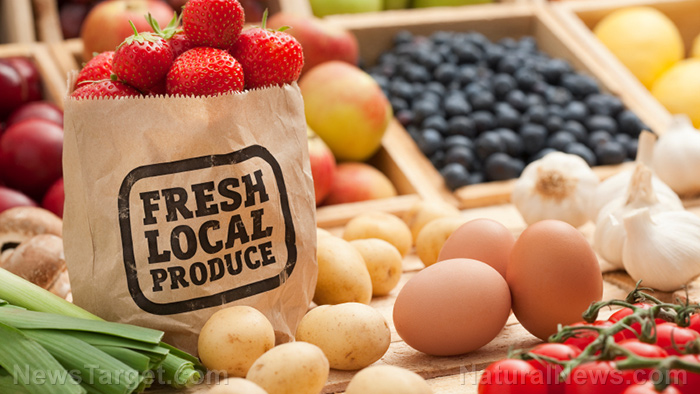
Advertisement
Growing practices can affect the fruits and vegetables you buy, allowing them to absorb pesticides which can then end up on your plate. To avoid this, you should try your best to buy organic produce. However, sorting out which fruits and vegetables you should buy organic can be a confusing task.
Every year, the nonprofit Environmental Working Group (EWG) releases a report called the Shoppers Guide to Pesticides in Produce. To make this list, the EWG tests fruits and vegetables bought from the grocery and washed, just like you would. In this report, you can find a list called the “Dirty Dozen.”
This list refers to the 12 fruits and vegetables that have the highest amount of pesticides. If you can’t buy a lot of organic foods, this list can serve as a guide for which fruits and vegetables you should buy organic to limit your exposure to pesticides.
Strawberries
Strawberries are the most pesticide-contaminated food you can buy. When the EWG tested the fruit, they found that more than 90 percent of the strawberries they tested contained two or more pesticides, even after washing. With this in mind, it’s highly recommended that you buy organic strawberries to limit the amount of pesticides your family is exposed to.
Spinach
Spinach is yet another food that is heavily contaminated by pesticides. By weight – note that spinach leaves weigh very little – spinach was found to have more pesticide residue than any other food that was tested. The EWG found that the spinach they tested was contaminated with high concentrations of a neurotoxin called permethrin. This chemical is usually used on the skin to treat scabies; however, if swallowed in large amounts, it can cause you to collapse or stop breathing. The good news is that it’s easy to buy organic spinach. Many organic grocery stores carry both organic spinach and organic baby spinach in their fresh and frozen produce sections.
Kale
Kale first made it to the EWG’s list in 2019. They found that over 92 percent of the non-organic Kale they tested was contaminated with two or more pesticides. Of these, 60 percent had traces of Dactal (DCPA), a chemical banned by the European Union and classified as a potential carcinogen by the Environmental Protection Agency.
Nectarines
Nectarines are another fruit that you should buy organic. When tested, the EWG found that 94 percent of conventional nectarines contained two or more pesticides. One of the samples they tested even had as much as 15 different pesticides on it.
Apples
You should also do your best to look for organic apples, as the thin peel of this fruit makes it easy for it to absorb pesticides. When they tested them, the EWG found that 90 percent of conventionally grown apples were contaminated. In addition, 80 percent of these had diphenylamine, a pesticide that has been banned in Europe.
Grapes
The non-organic grapes that the EWG tested were found to have an average of five different pesticides on them. Also, more than 96 percent of all the grapes they tested had these pesticides.
Peaches
Peaches are cousins of nectarines, and just like them, non-organic peaches were also found to have a lot of pesticides. In fact, the EWG found that 99 percent of the peaches they tested were contaminated, and most contained residue from at least four different pesticides.
Cherries
The EWG found that the non-organic cherries they tested had an average of five pesticides. On top of this, one-third of them contained a potentially cancer-causing pesticide that’s been banned in Europe.
Pears
Non-organic pears were found to contain large concentrations of several pesticides. Also, more than half of the pears had residue from five or more pesticides, including a number meant to kill fungus and insects.
Tomatoes
Your average non-organic tomato contains nearly four types of pesticides, according to the EWG. One sample even contained 15 different pesticides on it. Luckily, you shouldn’t have any trouble finding not just fresh organic tomatoes, but organic canned tomatoes and tomato products as well. The latter should let you enjoy organic tomatoes without having to break the bank.
Celery
Pesticides were found by the EWG in more than 95 percent of the non-organic celery that they tested. They also found up to thirteen different pesticides in one of their samples.
Potatoes
Just like spinach, non-organic potatoes also contained a lot of pesticides by weight, according to the EWG. More alarmingly, most of the residue came from a pesticide that was known to negatively impact the central nervous system.
Switching to organic fruits and vegetables is a surefire way of keeping you and your family safe from pesticides that may make it onto non-organic produce. That said, we recognize that organic produce can be expensive – you may not be able to afford to just switch to organic produce immediately. By focusing on the fruits and vegetables in the EWG’s “Deadly Dozen” list, you can pick which organic produce to focus on first. This will let you save a bit of money while still reducing the amount of pesticides in your food.
Sources:
Advertisements







